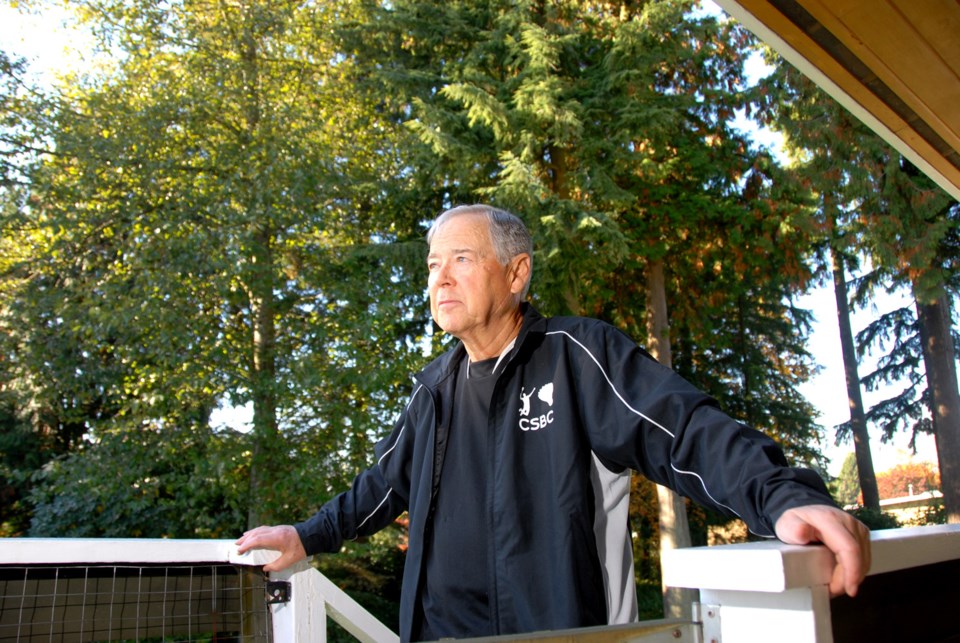One Burnaby resident says the city’s proposed changes to the tree bylaw are too restrictive and it shouldn't have control over property owner's trees.
On Monday night, city council heard from Walter Hallam, a 40-year Burnaby resident who says the new tree bylaw, if passed, is a step in the wrong direction.
In June, city staff put forward amendments to Burnaby's tree bylaw in an effort to strengthen it and close certain loopholes.
"I think it goes without saying that fewer, and less restrictive, bylaws are preferable," Hallam said. "What is the pressing need or reason for these proposed bylaw changes? I ask you. Are we losing trees because of disease, more developments and densification such as Metrotown, Burnaby Mountain developments, central valley sports fields, etc., etc.? Or is it because of the wanton and without reason, destruction of trees by local homeowners?"
Hallam noted that if it's the concern over homeowners, then he disagrees with that.
"In my observations, the canopy cover in Burnaby is no less now than five, 10, 20 or 40 yeas ago," he said. "To yours and previous councils, great credit is due. Development over the years has been handled well."
Hallam said the development in the four town centres is responsible for the decrease in trees, and has not been the homeowners fault.
"We homeowners, trim, take down and plant trees as current needs evolve," he said. "We need trees to show off our landscaping. We trim them to keep them appropriate and looking nice. We take them down when they become diseased, not suitable for the location or dangerous."
Hallam said with the new proposed changes, he would have to unfairly pay more money for each tree he finds a threat to his safety, or if he wants to take it down for more sunlight.
"Government has no business in the front or backyards of law-abiding residential homeowners," he added. "Unless you have overwhelming evidence of wanton destruction of these trees by homeowners and unbiased proof that we are somehow ruining the ecology or aesthetic values of the Burnaby that we all cherish, then please, please vote no to any changes in the current tree bylaw."
Hallam said he currently has eight significantly large trees in his backyard, but over the years many trees in his neighbourhood have fallen - once almost crushing his house. Insurance covered the $25,000 damage that was done.
"The last major windstorm we had was maybe five years ago or so," he said. "One of these significant trees, well over 100 ft. high ... it came down and glanced off another tree closer to our house. It just managed to deflect it, ... it cracked like kindling and took off the corner of our house cover. It was on the whole front yard."
Coun. Sav Dhaliwal said he agreed with Hallam that the proposed changes to the bylaw are too restrictive for homeowners.
"I think if we look back at the last couple of decades, I see a lot more trees," he said. "I don't see a clearcutting going on anywhere. It isn't a significant issue in my opinion."
Dhaliwal said the changes are not fair to homeowners dealing with trees in their backyard, while owners who have no trees on their property are unaffected.
Coun. Colleen Jordan said the impetus to change the tree bylaw came when many delegations came forward over the years showing the city was significantly losing its trees.
"I believe about 18 months ago, a large delegation of people were saying that indeed ... trees were disappearing from their neighbourhoods," she said, noting the delegations also came with lengthy petitions asking for stricter changes. "In their view, contrary to yours, we were losing a significant number of trees, especially on residential lots in residential areas."
The proposed changes would strengthen the enforcement program by increasing the penalty for cutting a protected tree without a permit from $2,000 to $10,000.
Changes have also been proposed to the permit fee structure - allowing for maximums starting at $500 to $3,000, depending on the property and whether or not it's under development.
The new bylaw would apply to all private lands, both during and outside of the development period; and city-owned lands, when subject to a development application. The proposals also address different size classes of protected trees.
A public consultation process started in the summer and a followup report is expected later this fall or in early 2014.



